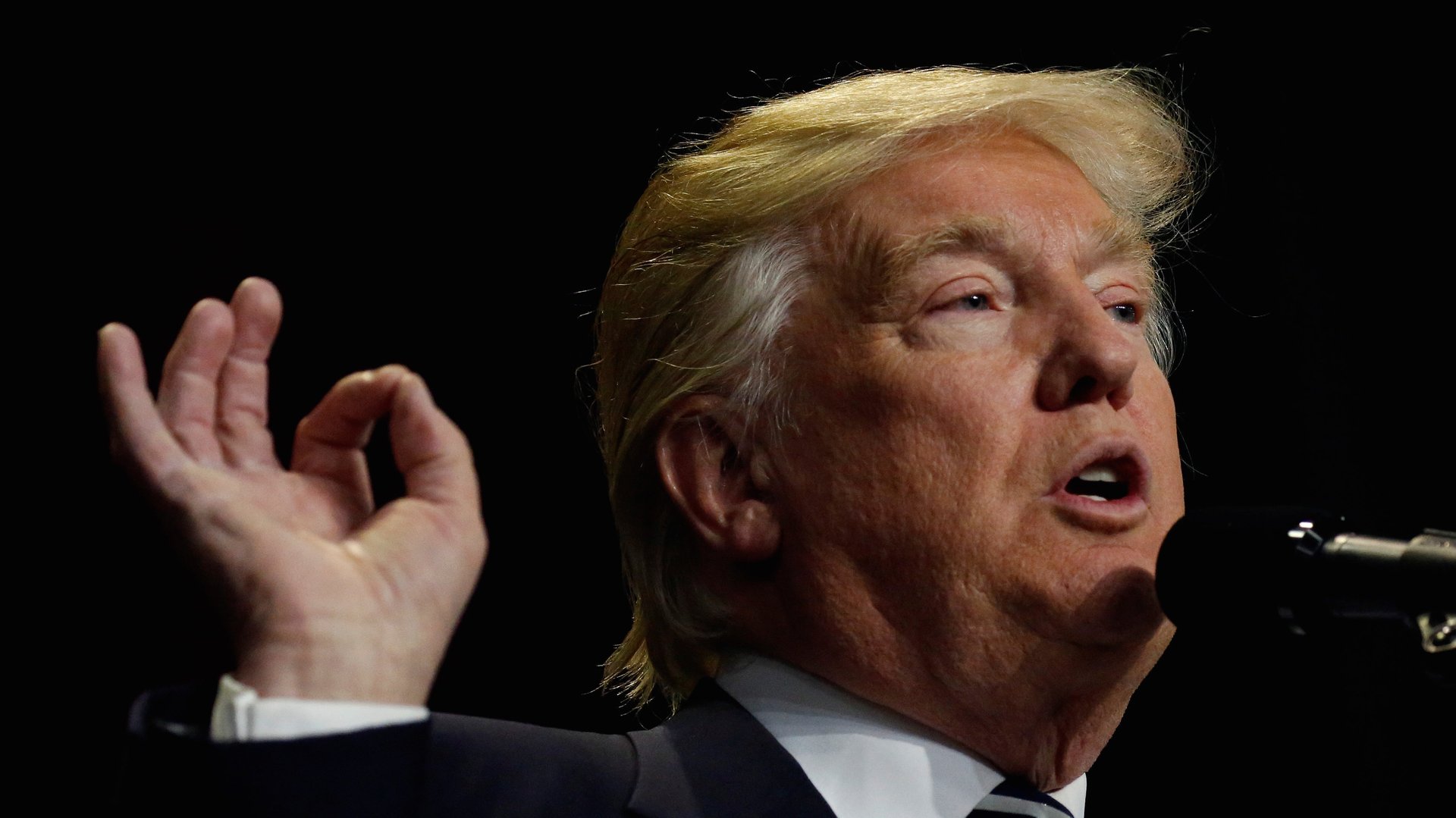Trump’s skepticism about climate change is turning scientists into activists
Scientists aren’t generally known for their political protests. But like so many things, that’s all changing under the shadow of a looming Trump presidency.


Scientists aren’t generally known for their political protests. But like so many things, that’s all changing under the shadow of a looming Trump presidency.
Dec. 12 marked the start of the four-day American Geophysical Union conference, a gathering of climate scientists that isn’t typically known for its raucous itinerary. But on Dec. 13, in between sessions on nonlinear geophysics, seismology, and the study of the earth’s deep interior, many attendees also took to the streets of San Francisco to protest the incoming administration’s stance on climate change. The rally drew hundreds of participants.
“We want to affirm and champion the role of science in society and call for evidence-based policies and really champion freedom of inquiry,” Beka Economopoulos, director of the Natural History Museum in Brooklyn, and a rally organizer, told Eos. “In this new anti-knowledge, anti-science era, it’s essential that we stand together to affirm the truth of science.”
Trump stands to have a major impact on climate science in coming years—as president, he will oversee the Environmental Protection Agency (EPA), the National Oceanic and Atmospheric Administration, and NASA, among other organizations. Collectively, these are the agencies charged with identifying the country’s environmental needs and threats, developing policies to address them, and holding companies and people to those policies.
There is obvious cause for concern. Trump has tweeted that climate change is a fiction created by the Chinese to harm US manufacturing, and more recently said “nobody really knows” if climate change is real. His pick to head the EPA, Scott Pruitt, describes himself as an activist against the EPA agenda, and is part of a group of state attorneys general suing the agency over its Clean Power Plan and methane-emissions regulations. That doesn’t bode well for the agency’s stated mission of protecting the environment.
Trump’s transition team also recently sent the Department of Energy a memo requesting the names of all department employees and contractors who attended annual global climate talks hosted by the United Nations within the last five years, scientists who have worked on climate change, and the professional memberships of lab workers. DoE spokesman Eben Burnham-Snyder said on Dec. 13 that the agency will not honor the request. Fearful that a Trump administration might hide or bury climate-science findings, scientists are also collaborating on ways to preserve government data on independent servers.
At the AGU conference, worries abound over future funding for research, jobs, and, of course, Earth. Peter de Menocal, dean of science at Columbia University, told NPR he has heard colleagues express “feelings of rage, anger, confusion, fear—they’re all negative emotions.”
AGU president Margaret Leinen notes, optimistically, that George W. Bush also denied climate change on the campaign trail, but shifted his stance while in office. She hopes to eventually discuss the science with Trump herself, and added a last-minute session to the conference to discuss concerns related to his presidency. Her colleagues organized the rally.
“This is a frightening moment,” said Harvard history of science professor Naomi Oreskest at the protest. “We have to get out and explain to people why this science matters.”